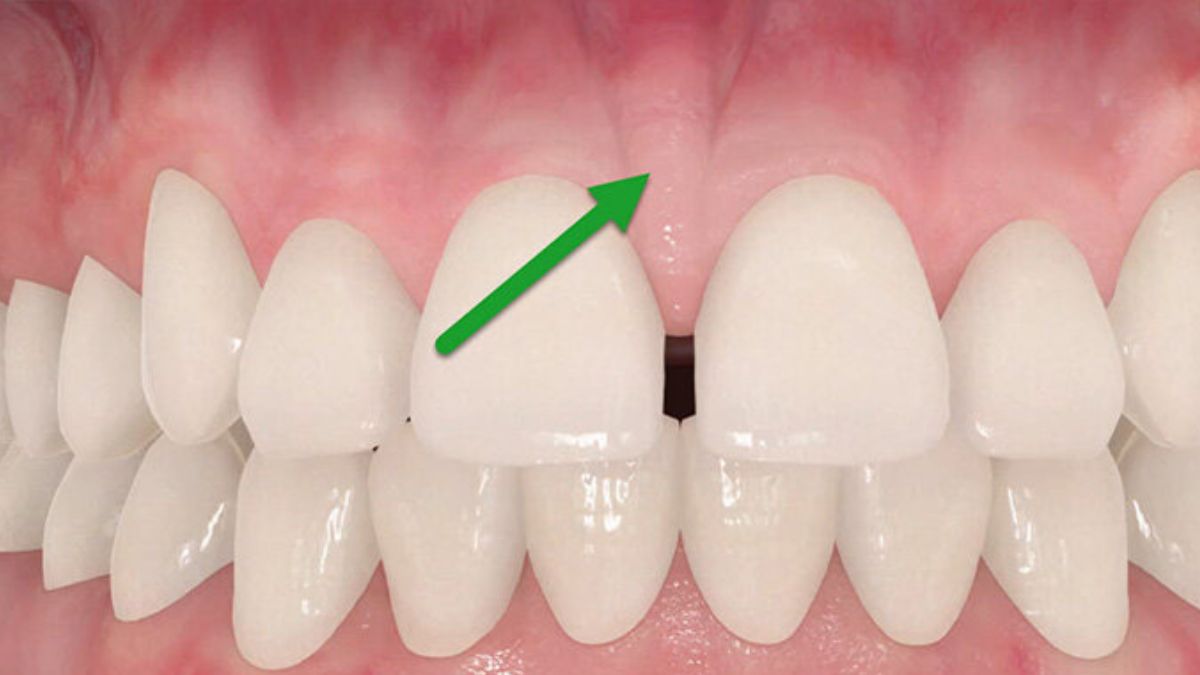When it comes to our mouths, a number of issues might compromise our ability to eat, talk clearly, and practice good dental hygiene. Frenum-related problems are a common example of conditions like this. In order to better understand frenectomy, this article will examine several aspects of the topic, including its definition, procedure, benefits, and more.
Understanding the Frenum
It is crucial to learn about the frenum before undergoing a frenectomy. A frenum is a tiny fold of tissue made up of mucous membrane and the underlying muscle fibers that serves to link two structures in the oral cavity. Under the tongue is the lingual frenum, while the upper and lower lips have the labial frenum, and the inside of the cheeks is covered by the buccal frenum. The tongue and lips rely on these structures for support and guidance, among other things.
What is a Frenectomy?
Frenectomy refers to the surgical excision or alteration of a frenum. This operation is performed to release a frenum that is either too tight or in an aberrant position, causing functional and anatomical constraints. Ankyloglossia, also known as tongue-tie, lip-tie, and gum recession caused by the frenum are all disorders for which a frenectomy is a typical recommendation.
Conditions Requiring Frenectomy
When the lingual frenum prevents the tongue from moving freely, a disorder known as ankyloglossia occurs. This can cause problems with nursing, language development, and dental health. When the top or lower lip is constrained by the labial frenum, this condition is known as lip-tie and might interfere with the baby’s ability to properly latch on during breastfeeding. Furthermore, a high or pulling frenum can induce gum recession, which can cause oral health problems and sensitivity to hot and cold foods.
Symptoms and Complications
Depending on the individual and the nature of the frenum issue, the symptoms may be mild, moderate, or severe. Children and adults with ankyloglossia may have trouble producing particular sounds and words, while infants may have trouble breastfeeding. Plaque buildup, cavities, and gum disease can all result from subpar oral hygiene brought on by limitations in tongue or lip movement. Preventing problems requires prompt diagnosis and treatment..
Diagnosis and Evaluation
A thorough clinical examination is required for the diagnosis of diseases affecting the frenum. Dentists, pediatricians, and oral and maxillofacial surgeons, as well as orthodontists, may work together to assess the frenum’s effect on patients’ oral health and function. When it comes to oral health, it’s crucial to discover problems early on in infants before they interfere with things like language growth.
The Frenectomy Procedure
A frenectomy should only be performed after careful planning and evaluation. A frenectomy may involve the use of surgical shears, a scalpel, or a laser. Considerations such as patient age, the severity of the ailment, and the surgeon’s personal preference all play a role in determining the method of treatment. After surgery, it’s important to take the right steps to ensure a speedy recovery and minimal discomfort.
Benefits of Frenectomy
People who have problems moving because of their frenum may find relief through a frenectomy. In babies, the operation can improve speech and breastfeeding by removing or altering the frenum, which frees up more room for the tongue and lip. Better oral hygiene is another way in which frenectomy can reduce the likelihood of dental problems and gum disease.
Risks and Considerations
Frenectomy has risks similar to those of any other type of surgical treatment. Possible complications after surgery include excessive bleeding, infection, and pain. Risks associated with surgery can, however, be reduced with the right pre- and post-op care. If you’re thinking about getting a frenectomy, talk to your dentist or doctor about the process, the risks involved, and the results you can expect.
Frenectomy in Infants, Children, and Adults
Anyone, regardless of age, can get a frenectomy. Frenectomy is a common surgical surgery for infants, and behavioral management approaches can help keep them comfortable. For children, reducing anxiety may need more conversation and planning. Frenectomies, or “frenectomies,” are surgical procedures performed on adults to correct cosmetic or functional issues.
Recovery and Aftercare
Carefully adhering to the postoperative recommendations given by a dentist or doctor after a frenectomy is essential. Over-the-counter and prescription pain medications, as well as other forms of pain management, can be useful in reducing symptoms of pain. It’s important to schedule follow-up visits at regular intervals to check on the patient’s progress and make sure they’re getting well.
Alternative Treatments
Frenectomies aren’t the only option, and in some circumstances other therapies might be better. Exercises designed to strengthen the muscles that control the tongue and lips are one component of myofunctional therapy. Certain oral health issues may also benefit from orthodontic treatments like braces or aligners. Frenum problems can lead to gum recession, which may require periodontal operations to fix.
Frenectomy Success Stories
The majority of those who have had a frenectomy report being pleased with the results. Better communication, more self-assurance, and higher oral function have all resulted from increased flexibility of the tongue and lips. Although everyone has their own unique experience, frenectomy has been proved to be a successful intervention in reestablishing proper oral harmony and function.
Conclusion
Restrictions in oral function and general health can be caused by a frenum, making frenectomy a useful surgery. Frenum modification or removal can result in better speech, cleaner teeth, and less long-term issues. Talk to a dentist or doctor about the possibility of a frenectomy if you or a loved one are experiencing difficulties as a result of frenum constraints.











